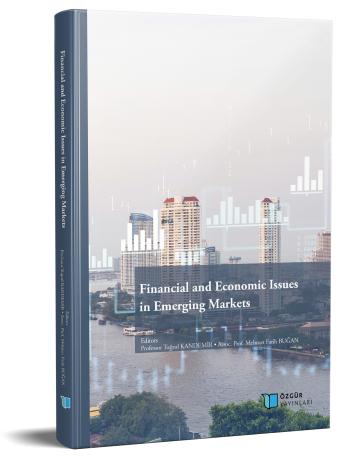
The Effect of Interest Rate, Country Credit Risk and Exchange Rate on Tourism Stocks: The Case of Developing Country Turkey (An Application in Borsa Istanbul Tourism Index)
Chapter from the book:
Kandemir,
T.
&
Buğan,
M.
F.
(eds.)
2022.
Financial and Economic Issues in Emerging Markets.
Synopsis
Although technological developments facilitate access to information, the rapidly accessible information has become one of the determining factors in the movements of economic and financial markets. Such that the effects of the disclosed information on financial and capital markets can be instantaneous, and the impact of the relevant information on financial assets is observed for a certain period of time, either directly or indirectly. In the study, the benchmark interest (Turkey 2-year government bond rate) from macroeconomic factors, the 5-year credit default swap premium (Credit Default Swap – CDS) which is Turkey's credit risk indicator, and the euro exchange rate, the common currency of the European Union, which covers the main markets of the tourism sector. Besides, it is examined the relations between the US dollar and tourism sector stocks, which are highly influential and essential in terms of the real economy and financial markets. In line with the purpose, in the study, long and short-term relationships were examined with cointegration and causality analyses in monthly observations, and the effects of variables on the tourism index were tried to be determined by impact-response analysis and variance decomposition test. In this study, in which the relations of the Borsa İstanbul Tourism index with the interest rate, CDS premium, euro rate and dollar rate are examined in monthly observations, it can be said that the stocks of tourism enterprises are affected by macroeconomic factors, sector and business-specific conditions other than the tested macroeconomic conditions. Tourism stocks are weakly related to the interest rate and country risk premium, as well as the euro and dollar exchange rates. Considering that the tourism sector, which has a long return on investment, is affected by many events, it can be stated that these results are appropriate with the investor risk-return expectation.

